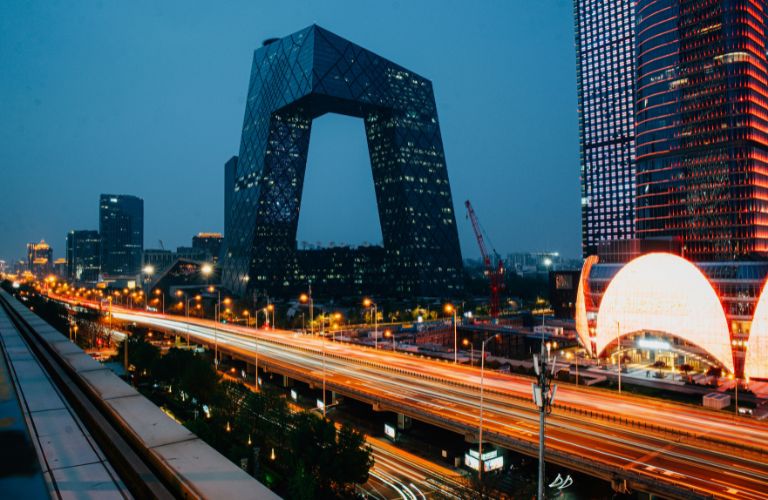Understanding “Slowbalization” and its Causes
In recent years, the global economy has experienced a notable shift. The once rapid pace of globalization, which fueled unprecedented growth in trade, investment, and cross-border cooperation, has significantly slowed. This emerging trend, Slowbalization, marks a departure from the aggressive global integration that defined the late 20th and early 21st centuries. This blog describes Slowbalization and its causes.
Unlike a complete reversal of globalization, Slowbalization reflects a more cautious and measured approach to international expansion, driven by trade wars, political tensions, technological advancements, and growing environmental concerns. As businesses and governments adapt to this changing landscape, understanding the forces behind Slowbalization becomes crucial for navigating the future of global trade.
What is Slowbalization?
Slowbalization is the term used to describe the slowdown in global economic integration. While globalization represents the increasing interconnectedness of economies, cultures, and industries worldwide, Slowbalization indicates a period where these connections are growing much slower. It’s not a reversal of globalization but rather a significant deceleration.
Throughout the 1990s and early 2000s, globalization was at its peak. International trade boomed, supply chains stretched across continents, and businesses eagerly expanded into new markets. However, starting in the 2010s, this rapid pace began to wane, signaling the onset of Slowbalization.

Factors Contributing to Slowbalization
Several global dynamics have contributed to the emergence of Slowbalization. From trade wars to environmental concerns, the following factors play a critical role in this slowdown.
Trade Wars and Protectionist Policies
One of the most significant drivers of Slowbalization is the rise in trade wars and protectionist policies. Governments across the world have increasingly adopted measures to protect their domestic industries, often at the expense of international cooperation. For example, the US-China trade war has led to tariffs and restrictions that disrupt global trade patterns. These policies make it harder for businesses to operate across borders, leading to a slowdown in economic integration.
[Extra read: The Importance and Need of Strong Negotiation Skills in Business]
Geopolitical Tensions and Nationalism
Political tensions and the rise of nationalism have also contributed to Slowbalization. Countries are becoming more focused on prioritizing their own interests rather than collaborating on a global scale. This shift toward nationalism often results in countries rethinking their trade agreements, immigration policies, and international alliances. The growing mistrust between global powers adds further complexity to international business and trade, encouraging nations to retreat from aggressive global expansion.
Technological Advancements and Automation
Technology, once a catalyst for globalization, has become a factor contributing to its deceleration. Automation and digital transformation have changed how businesses operate. As industries become more automated, there’s less reliance on global labor markets, particularly in manufacturing. Additionally, the rise of digital services reduces the need for physical goods to cross borders, weakening the necessity for extensive global supply chains.
Supply Chain Disruptions
Supply chains have become more fragile, especially after the COVID-19 pandemic. The pandemic exposed vulnerabilities in global supply networks, leading to widespread delays and shortages. As a result, many companies are reconsidering the value of lengthy, international supply chains. Businesses have decided to shorten their supply chains by localizing production or choosing more regional partnerships to reduce risk. This shift has further slowed the pace of global trade.

Environmental Concerns and Sustainability
Another major factor driving Slowbalization is the growing focus on environmental sustainability. As concerns about climate change intensify, businesses and governments are under pressure to reduce their carbon footprints. Long, international supply chains are often seen as environmentally unsustainable due to the high carbon emissions associated with shipping goods globally. In response, many businesses are shifting toward localized production and shorter supply chains that have a lower environmental impact, contributing to the slowdown in global economic integration.
What Does Slowbalization Mean for the Future?
Slowbalization doesn’t imply the end of globalization but rather a transformation. The world is still interconnected, but the dynamics of global trade and investment are changing. Companies are focusing more on regional markets, reducing dependence on far-flung supply chains, and embracing technologies that allow them to operate more efficiently within their borders.
For businesses, this shift presents both challenges and opportunities. On one hand, companies need to adapt to a more fragmented global landscape. On the other hand, there’s potential for innovation, especially in fields like automation and digital services, which can thrive in a slower global economy.
For policymakers, the key challenge will be finding a balance between protecting national interests and maintaining beneficial international relationships. Moving forward, collaboration on global issues like climate change, health, and technology will still be necessary, even if the pace of economic globalization slows.

Even During Slowbalization, We Can Discover Other Growth Opportunites that Can Help the Global Economy Boom
Slowbalization is a complex trend with multiple contributing factors, including trade wars, geopolitical tensions, technological advancements, supply chain disruptions, and environmental concerns. While the era of rapid globalization may be slowing down, new opportunities are emerging in a world that’s still interconnected, but with a stronger focus on regionalization and sustainability.
As we move into this new phase, understanding the forces behind Slowbalization will be essential for businesses, governments, and individuals looking to navigate the evolving global landscape.
[Also read: Common Data Privacy Issues in India]

